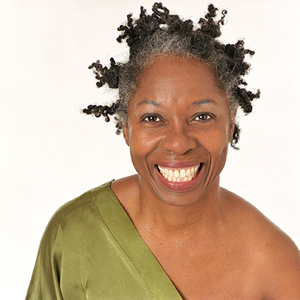
Even before she and the Urban Bush Women served as diplomats of dance this spring on a U.S. State Department-sponsored cultural-exchange tour of South America, renowned choreographer Jawole Willa Jo Zollar wore many hats. Make that dancing shoes.
Zollar is the founder and artistic director of Urban Bush Women, a Brooklyn-based African-American performance ensemble with a contemporary focus on history, culture and community. She is a tenured professor at The Florida State University, where she’s the Nancy Smith Fichter Professor of Dance. She has created choreography for the Alvin Ailey American Dance Theater, Philadanco and numerous other illustrious dance companies. She won a New York Dance and Performance Award — a "Bessie" — in 2006, a U.S. Artists Wynn Fellowship in 2008, and a Guggenheim Fellowship in 2009.
Then, last month, Zollar stepped into her new "arts ambassador" shoes. She and Urban Bush Women traveled and performed throughout Brazil, Colombia and Venezuela in March on a month-long dance odyssey — "DanceMotion USA" — sponsored by the U.S. State Department’s Bureau of Educational and Cultural Affairs to showcase contemporary American dance abroad.
"What a terrific privilege to represent the United States, especially in countries where the election of Obama has created such good will," Zollar said.
The State Department appointed the celebrated Brooklyn Academy of Music (BAM) as its DanceMotion USA tour organizer and producer. BAM chose as performers its Brooklyn neighbor Urban Bush Women and two other distinguished dance troupes. Each company was sent to one of three continents — Africa, Asia or South America — where the dancers spent about a week in each of three countries performing for and interacting with audiences, which were varied in age and ranged from sophisticated theatergoers to villagers to school children.
"The Urban Bush Women and I were in Caracas, Venezuela, in Cali and Cartagena, Colombia, and in Sao Paolo and Brasilia, Brazil, in that order," Zollar said. "We performed in every kind of setting imaginable — from public squares to beautiful theaters and auditoriums to spontaneous eruptions of dance in public places. We offered formal concerts, lecture demonstrations and workshops. We were received everywhere we went with incredible generosity and openness.
"Seeing global poverty is always disconcerting," Zollar said. "All three countries described their culture and heritage as a mix of indigenous, European and African cultures. I realize although that is also true of the United States, we don’t own our history or think of ourselves in that way.
"In all of the countries we were purposefully put in contact with the African descendants," she said. "Learning about Afro-Colombian and Afro-Venezuelan culture was fantastic. As with the United States we share the history of chattel slavery. I loved seeing the adaptations of African culture in each country and city. I was surprised to learn in Cali that all school children learn Salsa in the public schools."
Most moving and inspirational, said Zollar, was watching Alvaro Restrepo at work. The Colombia-born dancer and choreographer was trained in New York City and acclaimed in Europe but, in 1993, chose to devote his career to the introduction of modern dance to poor children in his native country, where the discipline was virtually unknown.
"In Colombia, we visited two performing-arts schools, including an amazing one in a rural area that trains young people in academics and in ballet, singing and music," Zollar said. "These youth come from backgrounds of poverty and are trained from age 8 and up in ballet," she said. "They attend academic classes part of the day and performing-arts classes the other part. The graduating dancers are hired by major ballet companies all over the world. The big challenge for the dancers is that they often can’t afford pointe shoes and ballet shoes.
"The other school was on the island of Baru, outside of Cartagena," Zollar said. "This island has the richest people and the absolute poorest. The school is for the poor. Alvaro Restrepo founded it, and the work we saw there was brilliant. The students were curious about the Urban Bush Women hairstyles — locks, curly, wavy and happily kinky."
While for 60 years the State Department had been sponsoring cultural-exchange programs highlighting the arts in America, DanceMotion USA was its first dance project in more than two decades, according to a March 21 New York Times article about the tour.
Zollar called the State Department’s reincarnated dance initiative an absolute must.
"Dance is a daily discipline that renews its practice through repetition," she said. "Seeing how other cultures experience the discipline and its renewal forges new connections. The traditions of community blended with professional practices offer profound insights that words alone can’t express.
"The trip truly affirmed the power of dance," Zollar said.
"And, it’s worth mentioning that men in South America seem to embrace dance in ways that most American men haven’t," she said.
In May, Zollar, who splits her time between Tallahassee and New York City, will be back at Florida State to teach over the summer. In the fall, she looks forward to dance improvisation labs.
"My collaborator, Nora Chipaumire, and I are looking for new models of work, and we are both researching and reading a lot about jazz music," Zollar said. "I’m reading about John Coltrane and Miles Davis, and continue to be inspired by their work."
Urban Bush Women, founded by Zollar in 1984, "weaves contemporary dance with music and text to illuminate the history, culture, and spiritual traditions of African Americans and the African Diaspora," according to the dance company’s Web site: www.urbanbushwomen.org. To learn more about The Florida State University School of Dance — part of the College of Visual Arts, Theatre and Dance and home to the cutting-edge Maggie Allesee National Center for Choreography (MANCC) — go to dance.fsu.edu.




